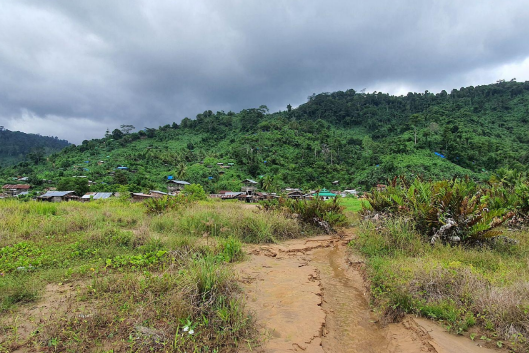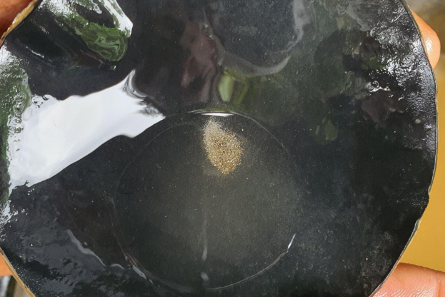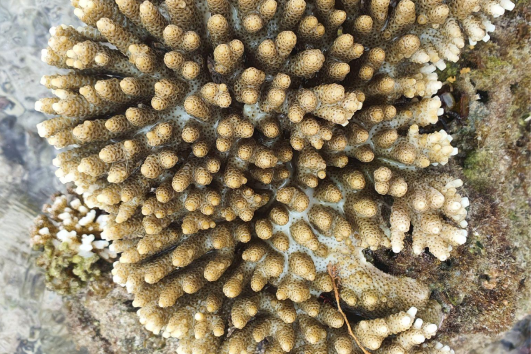North Maluku is one of the regions in Indonesia with quite high gold-mining potential. Several small-scale gold mines (ASGM) are spread across several islands in the province, one of which is Obi Island. The gold mining process that involves mercury via the amalgamation of gold ore makes the area polluted by mercury emissions from the water to the soil. Through these problems, the Laboratory of Ecology and Conservation’s lecturer, Siti Nurleily Marliana, S.Si., M.Sc., Ph.D., together with a research team from the Microbiology Research Center and the Ecology and Ethnobiology Research Center of the National Research and Innovation Agency (BRIN), SEAMEO-BIOTROP, Hasanuddin University, Hein Namatemo University, and the Forest Plant Seed Center of the Ministry of Environment and Forestry, carried out research focused on restoring environmental damage and reducing the impact of mercury contamination through rhizoremediation technology from September 16 to 29, 2023.
ASGM is the second-largest source of mercury contamination in the world after fossil fuels. This pollution contributes to a long-term decline in water and soil quality in the form of neurological damage, including decreased body coordination, the ability to speak, and even birth defects. In line with the Sustainable Development Goals (SDGs), restoring this pollution is an urgency not only in conserving land and water ecosystems (SDG 14 and 15) but also in improving the quality of life and health of local communities (SDG 3).
Leily and the research team used a bioremediative approach by highlighting the potential of the microbiome in suppressing high metal contamination while being environmentally friendly, efficient, and cheap, utilizing abscular mycorrhizal fungi, which can increase plant resistance and absorption of heavy metal contamination. The combination of phytoremediation and rhizoremediation is possible to reduce mercury contamination more quickly in ASGM areas.
Another impact of gold mining also reaches marine ecosystem with increased ocean acidification. This certainly threatens the ecosystem and lives of local communities from a health to socio-economic perspective. The economic disparities seen in the island area also have an impact on the community’s ability to mitigate the impacts of environmental damage and change. Environmental problems, health and community welfare must of course be given special attention.
During the research trip, Leily also revealed the limited access to Obi Island. The long route and limited transportation have an impact on researchers’ challenges in bringing samples from the island, making it a challenge in the ongoing research process. With those challenges, the research, which is planned to take place in several stages, is expected to provide a solution to the complex problem of pollution in Obi as well as benefit the local communities affected.
Author: Anysa
Written based on research report “Back in the Office, with Some Good Omens: Recounting on Seeking the Eureka for Mercury Contamination in Obi” by Siti Nurleily Marliana, Ph.D.




